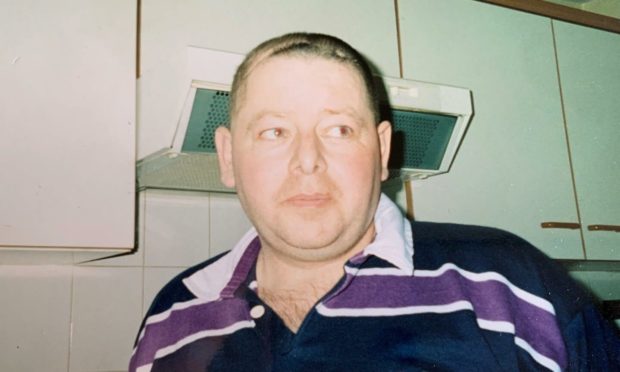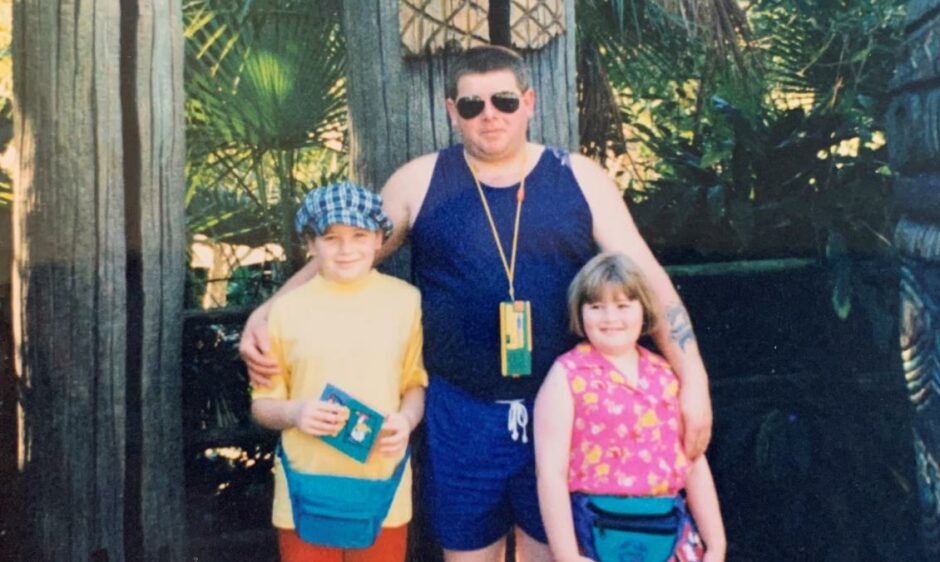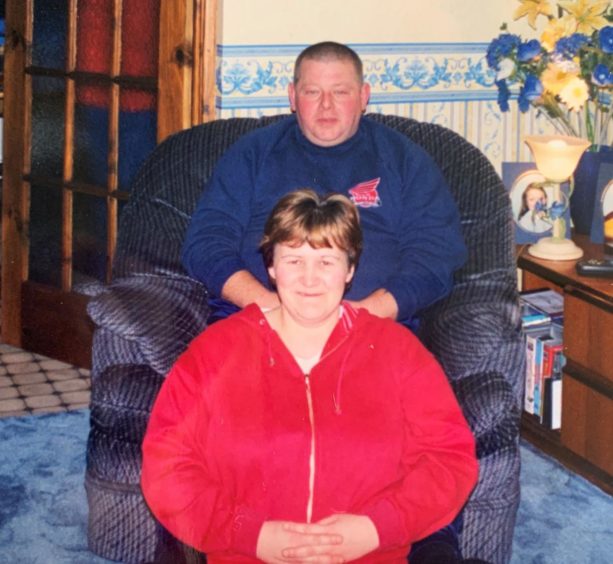An Aberdeenshire family is preparing to take an emotional walk to fund a cure for a condition which killed their father and husband.
Andrew Mackie died from a brain tumour in February 2003 when he was just 44 years old.
Next month his wife Moira and two daughters Laura and Sarah will walk from Dinnet, where Mr Mackie was from, to Cambus o’May, where his wife grew up.
The family is joining a national Walk for Hope on September 25 to support charity Brain Tumour Research while pleading for more cash to be devoted to finding a cure.
Early signs of tumour
Mr Mackie, who was known as Mac to his friends, started having seizures in August 1999 and went to the GP amid concerns he could have epilepsy.
However, with his eyesight deteriorating, he had a scan which detected the growing mass.
A biopsy in early 2000 confirmed he had a brain tumour.
Daughter Sarah Mackie, 32, said: “He had radiotherapy for six weeks and that did help him for about a year but then he started to deteriorate again. He went for another scan, which revealed the tumour was growing.”
In early 2002 he had an operation but doctors decided it was too risky to remove the whole tumour.
After another year his condition deteriorated further, when he made the decision to take palliative chemotherapy.
Sarah added: “It was the last thing they could offer him, and my dad was like, ‘Well I’m taking it, I’ll try anything at this precise moment’.
“He said: ‘I just want a little bit longer with my family’, so he went for that for another six weeks.”
Family’s plea for more research funding
Mr Mackie spent his final weeks at home with his family after returning from a spell at Roxburghe House in Aberden.
His family described his final days as “upsetting” while glad he was able to be at home.
Now they are calling for more government-funded research to find a cure for brain tumours – amid concerns just 1% of the national spend on cancer research is spent in the area.
Sarah said: “It’s ridiculous that the government just gives 1% of the budget to brain tumour research because all cancers are bad.
“I think it should be a bit more spread even. You shouldn’t just pick one cancer over another to give more money to. It’s not really fair.
“I am really hoping that the government sees that they need to try and divide that money up a bit better.
“Even if it was a bit more, even if brain tumours got 10% funding, that’s still a fair amount of money to help in doing the research to try and find some more things.”
The family’s walk to support charity Brain Tumour Research funds research centres in the UK while campaigning for more investment to find a cure.
Donations to support the Mackie family’s eight-mile Walk For Hope can be made online here.


